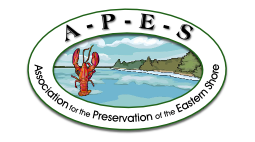|
The past year has been a very busy one for APES in its ongoing efforts to keep open-pen fish farms out of the coastal bays and inlets of the Eastern Shore.
Owls Head Site Clean-up
For months now we have been tracking the action (or inaction) of the provincial Departments of Environment and Climate Charge and Fisheries and Aquaculture to enforce aquaculture regulation at Owl’s Head. As you know, Snow Island Salmon operated two open-pen salmon farms there until 2013. When the Scottish owners returned to Scotland, they left the sites littered with derelict gear – buoys, lines and concrete moorings. These aquaculture leases were renewed in 2020 despite the fact that site clean-up is a prerequisite for lease renewal under the regulations. APES filed a formal complaint in 2020. Since then we have had to follow up repeatedly with the responsible provincial authorities.
After months of repeated delays and excuses and at the very end, the intervention of our local MLA, we are happy to report that the derelict gear has finally been removed. Although we are grateful that this work has finally been undertaken, we wonder why it had to take so much effort and took so long. We also wonder who paid for the divers and barge work, the lease owners or the taxpayers of Nova Scotia?
First Ever NS Aquaculture Review Board Hearing
In November, APES requested intervenor status in the first Nova Scotia Aquaculture Review Board hearing involving an after-the-fact approval of a substantial boundary expansion of an Cooke Aquaculture open-pen salmon farm near Digby. We had hoped to participate in this process as an intervenor to register our concerns that lease expansions should not be approved after the fact and that all coastal communities and the interested public should have the opportunity of bringing their concerns and knowledge to bear on aquaculture wherever it is practised in Nova Scotia’s public waters. This seems only fair in the face of a very aggressive aquaculture expansion strategy being pursued by the provincial Department of Fisheries and Aquaculture and the federal Department of Fisheries and Oceans. Communities should not be shut out of this process. The Board denied us intervenor status as well as the Ecology Action Centre, St. Mary’s Bay Protectors and the Healthy Bays Network of which APES is an active member.
The outcome of this first adjudicative hearing may be indicative of future Board decisions on four more Cooke aquaculture sites in the province which have expanded beyond their legal boundaries: Saddle Island, Bayswater; St Mary’s Bay, Westport; Annapolis Basin and Liverpool Bay.
Healthy Bays Network Media Conference, February 1, 2022
To register disapproval with this hearing process, the Healthy Bays Network organized a successful media briefing to raise awareness of this adjudicative process and the shutting out of community groups. APES has been an active participant in the work of the Healthy Bays Network steering committee as province-wide action is necessary to oppose the province’s open-pen finfish aquaculture expansions plans.
New Finfish Aquaculture Development Projects Proposed
New finfish aquaculture projects of various kinds are popping up all around the province which is why APES must remain vigilant in its opposition to open-pen farms and continue its work with the Healthy Bays Network and other community organizations around the province. Project proposals include Boreal Salmon in Yarmouth County, a NB operation with Chilean investors, and, Canadian Salmon Ltd., a new-to-Canada Norwegian company (Haugland-Gruppen) whose representative reportedly said the company was interested in Nova Scotia due to its regulatory regime and wasn’t interested in community concerns seeing this as the domain of the provincial government. You may also recall that community-based opposition was a contributing factor to the withdrawal of Cermaq owned by Mitsubishi Corporation from expanding in Nova Scotia two years ago.
Further, APES continues to have contact with community groups in British Columbia where the federal government (DFO) has committed to getting net pens out of the water by 2025 in the Discovery Islands (Broughton Inlet) due to impacts on wild fish.
Eastern Shore Gold Mines
Also, in our “backyard”, proposals for the development of three new gold mines are undergoing federal and provincial environmental assessments (Beaver Dam, Fifteen Mile Stream and Cochrane Hill Mines) to supply the existing operational Touquoy mine at Mooseland. These projects are operated by Atlantic Mining NS, a subsidiary of an Australian mining company. This company was charged with more than 32 offences relating to its Eastern Shore gold mining operations. After negotiations over the past year reduced the number to two, the company has been fined $10,000 and ordered to pay an additional $240,000 in financial penalties after pleading guilty to federal and provincial charges.
There are community concerns regarding the new proposals around potential impacts on fish and fish habitat in Eastern Shore watersheds which flow into Eastern Shore bays and inlets. Also at risk is the Nova Scotia Salmon Association's 17-year wild Atlantic salmon and habitat restoration project on the West River Sheet Harbour and the Killag River as well as the restoration work of the St. Mary’s River Association near Sherbrooke.
We Need Your Support
We are again asking you to join and support the work of the Association for the Preservation of the Eastern Shore. It is only through membership ($10.00 per year) and donations that we are able to pay for our website and do the work we do.You can make a donation or pay your membership via pay pal, credit card, cheque or bank transfer on our website (www.nsapes.ca) or a cheque can be sent to Jeannie Hubley at 19396 Highway 7, RR1,. Tangier, N.S. B0J3H0.
Thanks in advance for your support!
Working together we can KEEP OUR HARBOURS CLEAN!
Stay safe everyone.

|

